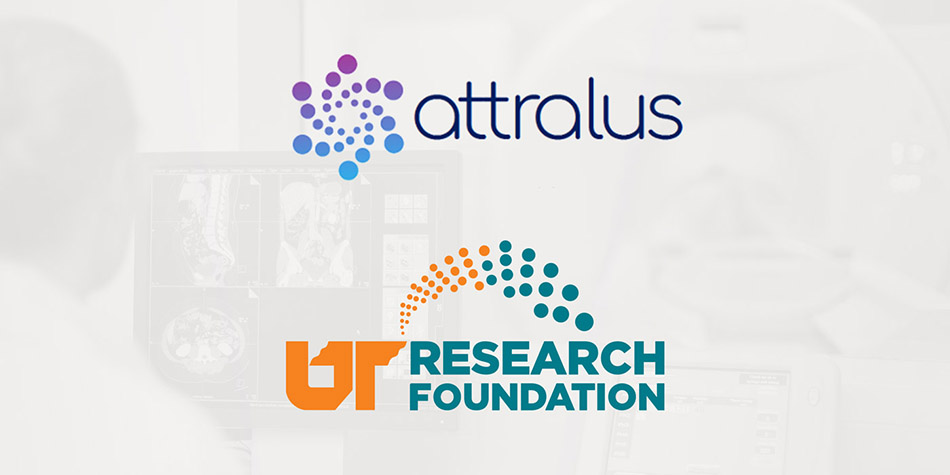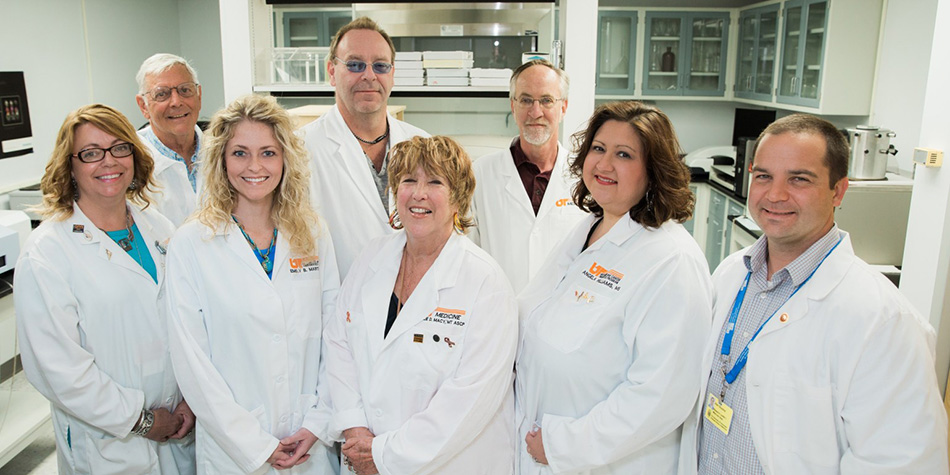Professor Jonathan Wall and his team at the UT Graduate School of Medicine have spent more than two decades investigating systemic amyloidosis. Their work played an integral role in helping launch the biopharmaceutical company Attralus with technology licensed from UTRF. Today, Attralus announced that it has secured $25 million in investment financing to work on transformative medicines to improve the lives of patients with this disorder.
Read the full press release from the University of Tennessee System below:
Attralus Secures Investment to Transform Treatment for Patients with Systemic Amyloidosis
 KNOXVILLE — Attralus, a biopharmaceutical company with technology licensed from the UT Research Foundation, announced it has secured $25 million in investment financing to work on transformative medicines to improve the lives of patients with systemic amyloidosis.
KNOXVILLE — Attralus, a biopharmaceutical company with technology licensed from the UT Research Foundation, announced it has secured $25 million in investment financing to work on transformative medicines to improve the lives of patients with systemic amyloidosis.
By strategically evaluating, protecting and licensing innovations, the UT Research Foundation moves UT’s innovations to the marketplace for public benefit.
“We’re proud when our researchers lead the way in developing new treatments to help people, especially when their work plays an integral role in launching companies that can change lives,” said UT President Randy Boyd. “Attralus has the capacity to do just that.”
The financing was led by venBio Partners in San Francisco and will allow Attralus to further validate its pan-amyloid imaging agent and advance two therapeutic candidates into clinical development.
“We are excited to partner with the exceptional researchers at UT to develop transformative therapies for patients living with a range of systemic amyloid diseases,” Spencer Guthrie, CEO of Attralus, said. “We believe Attralus will have the opportunity to deliver life-changing therapies to patients who suffer from systemic amyloidosis without approved treatment options.”
Systemic amyloidosis encompasses 30 disorders that occur when amyloid fibrils accumulate in multiple organs, including the heart, kidneys, liver, gastrointestinal tract and nerves. Patients with amyloidosis can experience heart failure, kidney failure and neuropathy. Most patients have less than five years of life expectancy from symptom onset.
Jonathan Wall, professor of medicine at the UT Graduate School of Medicine and Attralus interim chief scientific officer, leads UT’s amyloidosis and cancer theranostics program. He and his research group have spent more than two decades investigating the disorder.

Dr. Jonathan Wall and research team. From left to right: Front: Tina Richey, Emily Martin, Sallie Macy, Angela Williams, Alan Stuckey Back: Stephen Kennel, Dr. Wall , James “Steve” Foster. Not pictured: Craig Wooliver (Photo courtesy of UT Graduate School of Medicine)
“Based on years of focused research and direct work with patients, we are now able to fully visualize the extent of systemic amyloidosis, begin to fully understand the impact of the disease and to guide development of truly novel and targeted therapeutics for so many patients who have not had access to therapies,” said Wall. “We are excited to use the scientific knowledge gained to date to shed light on the disease and drive forward progress for all patients living with systemic amyloidosis.”
Paul Hauptman, dean of the UT Graduate School of Medicine, adds:
“We are proud of the research accomplishments of Dr. Wall and colleagues at our Amyloidosis and Cancer Theranostics Program and are excited by this important bench-to-bedside collaboration with industry partners.”
Steven Goodman, UTHSC vice chancellor for research, also praised Walls’ work.
“Dr. Wall combines great research acumen with the entrepreneurial spirit required to translate basic research into important therapies and cures for human disease,” Goodman said. “He has performed groundbreaking work on the development and translation of biologicals for imaging and therapy of systemic amyloid diseases. Through Attralus, I am hopeful that Dr. Wall’s work will lead to new therapies for this disease that negatively impacts multiple organs and is a disease that desperately needs new treatment options.”
Attralus’s team of leading amyloidosis scientists and experts, including Guthrie and Wall, have researched and advanced therapeutics in systemic amyloidosis for more than 25 years. The team understands first-hand the high unmet medical need among patients with the disease and is committed to the path toward potential new therapies driven by science. Richard Gaster, venBio partner, and Corey Goodman, venBio managing partner, will join Guthrie and Nancy Miller-Rich, former Merck head of business development, on Attralus’ board of directors.